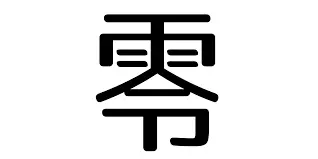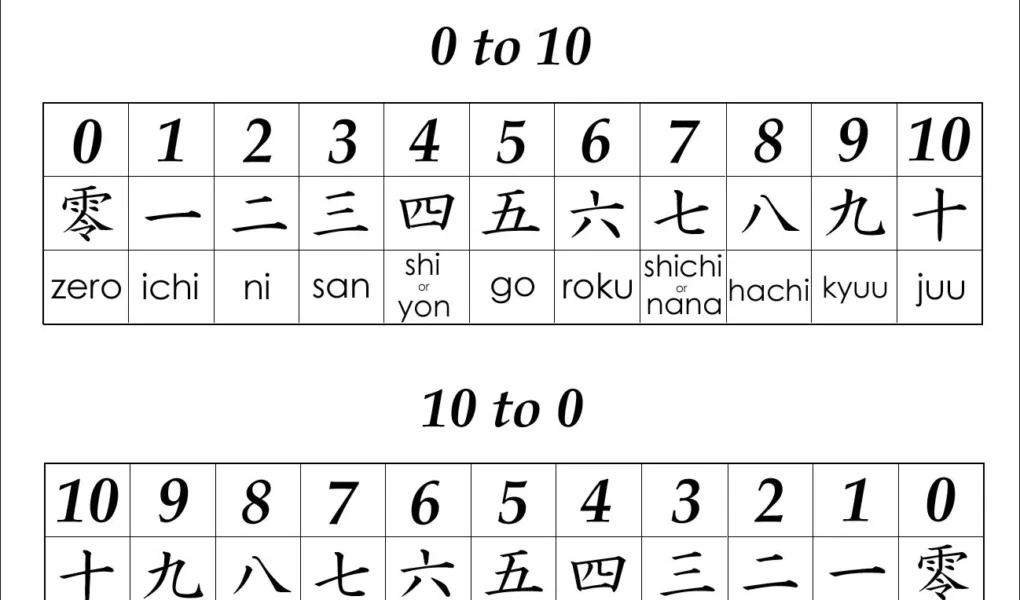Have you ever considered the profound significance of nothingness? In Japanese culture, zero transcends mere numerical value, weaving through language, art, and technology with elegant precision. Join us on a journey through the enigmatic world of zero in Japan – where emptiness is filled with meaning and voids are rich with symbolism. Take a deep dive into the depths of Japanese language and culture like never before!
The Origin and Meaning of Zero in Japanese Culture
In Japanese culture, the concept of zero dates back to ancient times and has profound philosophical implications. Known as “rei” or “zero,” this void represents emptiness and potentiality. Zero symbolizes the beginning and end – a cyclical nature inherent in Japanese beliefs. It embodies impermanence, reminding us of life’s transient essence. In Zen Buddhism, zero reflects the state of enlightenment – a mind free from attachments and illusions. It signifies clarity, simplicity, and the unbounded possibilities found within nothingness. Japanese art often incorporates zero through minimalist aesthetics like wabi-sabi, embracing imperfections and transience. Zero’s influence pervades various creative expressions, from traditional tea ceremonies to contemporary design trends.
The Role of Zero in the Japanese Language
Zero, known as “rei” in Japanese, plays a significant role in the language beyond just numerical value. In Japanese, zero is used to represent the number 0 and as a placeholder when writing numbers. This concept of zero as a placeholder influences how numbers are structured and pronounced in Japanese.
Traditional and Modern Uses of Zero in Japan
Traditional uses of zero in Japan date back centuries, with the concept deeply rooted in cultural practices and beliefs. In conventional Japanese numerals, zero is represented by a circle symbol called “maru.” This symbol holds significance in various aspects of Japanese life, from art to mathematics. In modern times, zero plays a crucial role in Japan’s technology and innovation. Zero is ubiquitous, from the development of electronic devices to advancements in robotics and artificial intelligence. Its mathematical significance has paved the way for groundbreaking discoveries and inventions that have shaped Japan’s technological landscape.
The Symbolism of Zero in Japanese Art and Literature
In Japanese art and literature, zero holds deep symbolic meanings that resonate throughout history. It represents the concept of emptiness and the void, signifying nothingness and infinite potential. Artists often use zero to convey a sense of minimalism, simplicity, and tranquillity in their works. Zero is also associated with the Zen philosophy prevalent in Japanese culture. It embodies the idea of letting go of attachments and embracing impermanence. This symbolism can be seen in traditional ink paintings, haiku poetry, and even contemporary manga illustrations.In literature, authors use zero as a metaphor for enlightenment or spiritual awakening. It is a gateway to introspection and self-discovery within the narratives they weave. The imagery evoked by Zero adds layers of depth and complexity to stories told through written words. The symbolism of zero in Japanese art and literature reflects a profound understanding of duality, balance, and interconnectedness within the universe.
Misconceptions and Controversies Surrounding Zero in Japanese Culture
Misconceptions and controversies surrounding zero in Japanese culture have sparked debates among scholars and enthusiasts alike. Some mistakenly believe that the concept of zero was absent in traditional Japanese mathematics, overlooking its historical significance. Others argue about the influence of other cultures on Japan’s adoption of zero, questioning its authenticity. The controversy also extends to cultural interpretations, with differing perspectives on the symbolism attached to zero in various art forms. While some view it as a representation of emptiness or nothingness, others see it as a symbol of infinite possibilities and potential.
The impact of zero on Japan’s technological advancements
Zero’s cultural, linguistic, and symbolic richness undeniably played a vital role in shaping Japan’s technological landscape. From the invention of zero as a concept to its integration into the Japanese language and mathematical systems, this seemingly simple digit has had profound effects on Japan’s advancement in various fields of modern times; zero continues to be a fundamental element in technological innovations that have positioned Japan as a global leader in cutting-edge developments. The meticulous attention to detail and precision associated with zero is reflected in Japanese engineering marvels like high-speed trains, robotics, electronics, and more. As we reflect on the multifaceted significance of zero in Japanese culture and society, it becomes evident that this small symbol carries immense weight beyond its numerical value. It serves as a reminder of Japan’s rich heritage, innovative spirit, and unwavering commitment to excellence across diverse domains. Zero embodies the essence of “mu” – nothingness yet everything – harmoniously encapsulating tradition and progress within Japan’s dynamic technological landscape.




